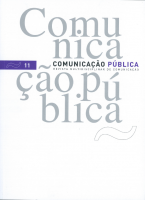Consummation, a meta-consumption
DOI:
https://doi.org/10.4000/cp.320Keywords:
consumption, consummation, sociology of consumption, anthropology of consumptionAbstract
Beyond the economic principles of scarcity, necessity and profitability, there is in consumption a dimension of wastefulness, lavishness and extravagance. In view of a material definition of consumption, we recognize an immaterial and symbolic register that we call consummation. The consummation is not a concept that contrasts with consumption but it is a meta-consumption, a second-degree consumption that has to do with the social evanescence of the meaning and with the symbolic circulation that emphasizes a socio-anthropological dimension.
In this paper, we try to underscore consumption’s symbolic dimension as a communicative form characterized by a material action that binds the individual in the symbolic reproduction of the social bond.
Downloads
References
Appadurai, Arjun ed. (1986) The Social Life of Things – commodities in cultural perspective, Cambridge, Cambridge University Press.
Bataille, Georges (1967) La Part Maudite precédé de La Notion de Dépense. Paris, Édition de Minuit.
Baudrillard, Jean (1995) Para uma Crítica da Economia Política do Signo. Lisboa, Edições 70 [Pour une Critique de l'Économie Politique du Signe, 1972].
Baudrillard, Jean (1995a) A Sociedade de Consumo. Lisboa, Edições 70 [La Société de Consommation, 1970].
Bauman, Zygmunt (2007) Consuming Life. Cambridge, Polity Press. DOI : 10.1177/146954050100100102 good / bad
Bourdieu, Pierre (1979) La distinction: critique sociale du jugement. Paris, Éditions de Minuit.
Douglas, Mary e Isherwood, Baron (1996) The World of Goods – towards an anthropology of consumption. Londres, Routledge.
Duarte, Alice (2010) A Antropologia e o Estudo do Consumo: revisão crítica das suas relações e possibilidades. Etnográfica, 14 (2), pp. 363-393. DOI : 10.4000/etnografica.329 good / bad
Evans-Pritshard (1940) The Nuer: a Description of the Modes of Livelihood and Political Institutions of a Nilotic People. Oxford, Clarendon Press.
Godelier, Maurice (2000) O Enigma da Dádiva. Lisboa, Edições 70 [L’Énigme du Don, 1996].
Goffman, Ervin (1951), Symbols of Class Status. British Journal of Sociology, n. º11, pp. 294-304.
Horkheimer Max e Adorno Theodor (2002) La Dialectique de la Raison. Paris, Gallimard [Dialektik der Aufklärung. Philosophische Fragmente, 1947].
Lévi-Strauss, Claude (1962) Le Tótemisme aujourd’hui. Paris, Presses Universitaires de France. DOI : 10.3917/puf.strau.2002.01 good / bad
Lipovetsky, Gilles (2007) A Felicidade Paradoxal – ensaio sobre a sociedade do hiperconsumo. Lisboa, Edições 70 [Le bonheur paradoxal. Essai sur la société d'hyperconsommation, 2006].
Mateus, Samuel (2011) Publicidade e Consumação nas Sociedades Contemporâneas. Covilhã, Livros Labcom.
Mauss, Marcel (2001) Ensaio sobre a Dádiva. Lisboa, Edições 70 [Essai sur le Don, 1923].
Miller, Daniel (1987) Material Culture and Mass Consumption. Oxford, Basil Blackwell.
Simmel, Georg (1950) Metropolis and Mental Life. In: The Sociology of Georg Simmel. Nova Iorque, Free Press, pp. 409-424.
Tönnies, Ferdinand (2002) Community and Society. Nova Yorque, Dover Publications [Gemeinschaft und Gesellshaft, 1887].
Veblen, Thorstein (1994) The Theory of the Leisure Class. Nova Iorque, Dover Publication [The Theory of the Leisure Class: An Economic Study of Institutions, 1899].
Yãnez Casal, Adolfo (2005) Entre a Dádiva e a Mercadoria – ensaio de antropologia económica. Amadora, Edição do Autor.
Downloads
Published
Issue
Section
License
Copyright (c) 2012 Direitos do Autor (c) 2012

This work is licensed under a Creative Commons Attribution-NonCommercial 4.0 International License.
Os conteúdos da Comunicação Pública estão licenciados com uma licença Creative Commons - Atribuição-NãoComercial 4.0 Internacional.


